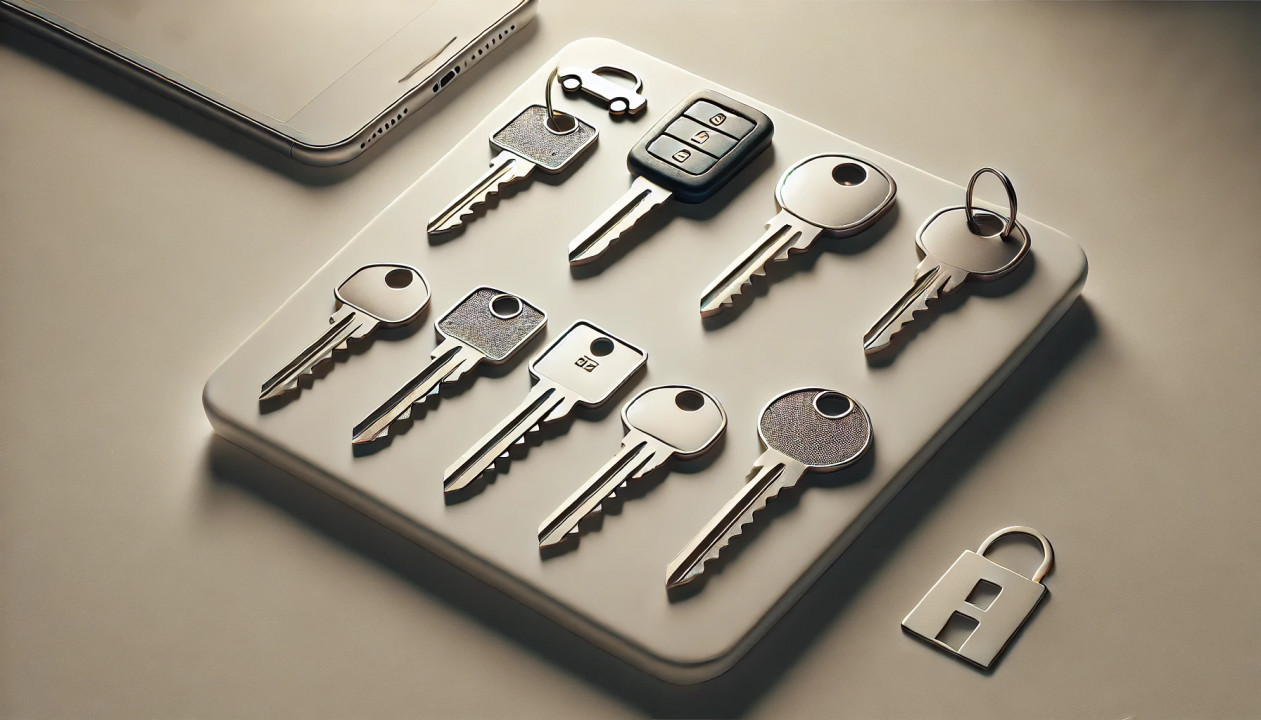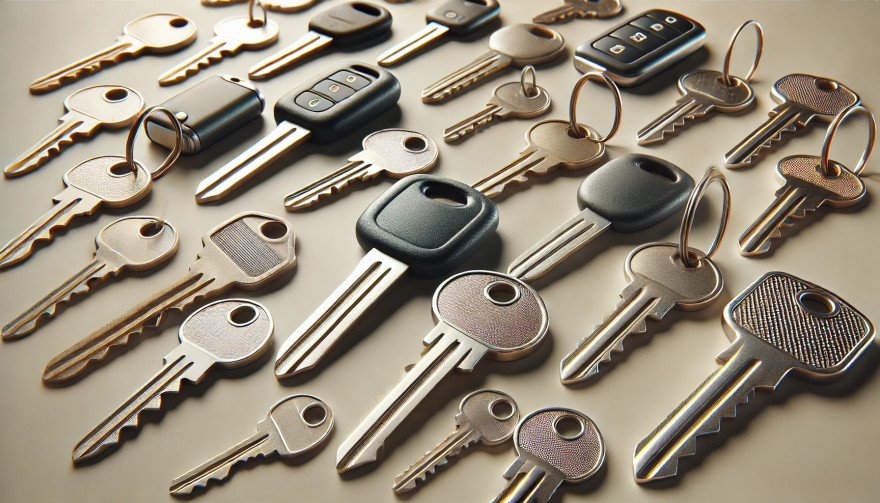Replacing a lost or broken key might seem straightforward, but identifying the correct type of key is crucial to getting an exact replacement. Whether you need a car key, a house key, or even a cabinet key, each type has specific features that determine its function and fit. Here’s a step-by-step guide to understanding your key type, so you can save time and avoid unnecessary frustration when ordering a replacement.
Why Key Identification is Important
Keys come in many shapes and sizes, each designed for specific types of locks. Understanding your key’s unique characteristics ensures you get the right replacement and avoid wasted time or money on mismatched keys.
- Avoid Extra Costs: Ordering the wrong key can mean additional fees for reordering.
- Save Time: Getting the right key from the start saves the hassle of sending it back and waiting for the correct replacement.
- Enhance Security: Accurate key identification ensures your security by avoiding compromised, incorrect key fits.
Types of Keys: Which One is Yours?
Understanding the different types of keys can help you determine what you have. Here are the common types and what makes each unique.
1. Household Keys
Household keys are typically designed for residential locks like front doors, back doors, and garage doors. These keys are often small and have either a single or double-sided cut pattern along the edges. Some household keys are unique in design, making them specific to a particular lock type.
- Common Features: Smaller, single or double-sided cuts.
- Typical Use: Standard residential door locks, such as deadbolts and knob locks.
Tip: Look for any identifying numbers or letters on the key itself. These may indicate a specific lock series, making it easier to identify.
2. Car Keys
Car keys come in various styles, depending on the make, model, and year of the vehicle. While older cars may use basic metal keys, most modern vehicles use transponder keys or fob keys with embedded chips for added security.
- Basic Car Keys: Metal keys without electronic components.
- Transponder Keys: These have a small chip embedded in the head, which communicates with the car to prevent theft.
- Key Fobs: Some cars use a fob that contains a keyless entry system, which requires programming specific to your vehicle.
Tip: If your car uses a transponder or fob key, you may need assistance programming the replacement.
3. Padlock Keys
Keys for padlocks can be small and compact, with a straightforward design. These keys often have a unique series number printed on them, making it easier to match them to a specific lock model.
- Common Features: Small size, usually single-sided.
- Typical Use: Storage units, gym lockers, and outdoor gates.
4. Furniture and Cabinet Keys
Furniture and cabinet keys are typically found on desks, filing cabinets, and other types of lockable furniture. These keys are generally small, with a straight or tubular shaft, and they often have numbers or letters for identification.
- Common Features: Compact, single or double-sided cuts, often with identification codes.
- Typical Use: Office furniture, personal storage, and older-style drawers.
5. High-Security Keys
High-security keys are specifically designed to prevent unauthorized duplication. These keys have unique, intricate cut patterns and require special authorization for copying.
- Common Features: Complex, often multi-sided cuts with additional security features.
- Typical Use: High-security doors in residential or commercial settings, safes, and secure access points.
Key Identification Tips: What to Look For
Once you know the type of key, you’ll want to examine specific details that will help with identification. Here’s what to look for:
- Keyway and Shape: The groove pattern, or “keyway,” is specific to the key type. Take note of the key’s shape and groove configuration.
- Markings and Codes: Look for any numbers or letters printed on the key. These often refer to specific lock brands or key series.
- Size and Length: Measure your key’s length, as some keys are longer or shorter depending on the lock type.
- Metal Head Design: Certain keys, like car keys, may have plastic or rubberized heads, which can indicate the need for a transponder or chip inside.
Steps to Identify Your Key Type

- Inspect for Markings: Look closely at your key for any stamped numbers, letters, or symbols. These markings can often be referenced to find a matching lock or brand series.
- Measure Your Key: Use a ruler or tape measure to record the length and width of your key. These dimensions can help narrow down the exact key type.
- Examine the Cut Pattern: Take note of the number of cuts and whether they are on one or both sides.
- Identify the Head Style: If it’s a car key with a transponder, the head might be plastic or rubber.
- Check for a Code on the Lock: Some padlocks and cabinet locks have codes printed on them that correspond to a specific key model.
What to Do When You Can't Identify the Key
If your key has no visible markings or the cuts are unusual, consider taking a photo to help in the identification process. For specialty keys or hard-to-identify types, you may want to seek professional help or consult a detailed online database for reference.
Preventing Future Key Confusion
Once you’ve identified your key, take a few steps to prevent future issues with identification.
- Label Your Keys: Adding a small tag with a brief description can help you remember the type of key.
- Keep Spare Keys in a Safe Place: Having a backup key prevents you from needing a replacement immediately.
- Store Key Codes or Information: If your key or lock has a series code, store it in a safe place in case you need it for future reference.
Identifying your key type is essential for getting a precise replacement without unnecessary hassle. By taking the time to understand your key’s unique features, you can save both time and money when it’s time to replace it. Following these steps will help ensure that your replacement key works as smoothly as the original.


_1736339090.jpg)
_1733388347.jpg)

 (1)_1736340504.jpg)